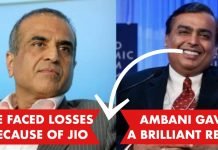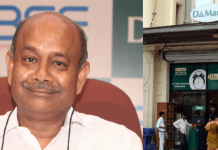A failure was an option for Arianna Huffington. In fact, she all but espoused her setbacks.
The author of 13 books, Huffington is a nationally syndicated columnist, commentator, public radio co-host on Left, Right & Center, and mother of two teenage daughters. She’s best known as the face of one of the nation’s most successful blogs, The Huffington Post, which she co-founded.
But greatest on her list of failures are the 36 rejections of her second book, despite the success of her first. Then there’s her abysmal showing as an independent in California’s 2003 gubernatorial race: Although Huffington withdrew a week before the election, her name stayed on the ballot and she finished fifth with 0.55 percent of the vote.
Rather than recoiling and licking her wounds, Huffington seems to gain courage and wisdom with each failure to take on even greater challenges. Those book rejections only reinforced her perseverance in future pursuits. Through her failed gubernatorial campaign, which raised almost $1 million online.
I learned about the power of the Internet.
-says she.
Two years later, she and business partner Ken Lerer launched The Huffington Post.

Today, as HuffPost continues to dominate Internet media, having reached profitability and attracting traffic that’s reportedly five times greater than its new-media competitors, Huffington celebrates her latest book, Third World America, published by Crown Publishers. In the book, she skewers politicians for undermining the American Dream and middle class.
I believe the decline of the middle class in America is something very important, something we should pay attention to. That’s my latest project.
-says Huffington.
Huffington, 60, says a big chunk of her resilience and journalist’s pluck can be traced to her girlhood in Athens. Her parents, Elli and Konstantinos Stassinopoulos, who divorced when she was 11, set bold examples that moulded her life.
My mother instilled in me that failure was not something to be afraid of, that it was not the opposite of success. It was a steppingstone to success. So I had no fear of failure. Perseverance is everything. I don’t give up. Everybody has failures, but successful people keep on going… She was my life mentor.
Huffington’s father, a dreamer, exposed her to the excitement of journalism.
He would start newspapers, most of which did not succeed. That was his passion. During the German occupation of Greece, he published an underground newspaper. He was caught and spent the rest of the war in a concentration camp. When he was recovering from being in the camp, he was at a sanitarium and met my mother there. She had tuberculosis.
-says she.

Elli Stassinopoulos had a passion for education, Huffington says, and insisted that Arianna and her younger sister, Agapi, be disciplined in their studies.
In 1967, after a coup in Greece, soldiers enforced a curfew at every corner. Huffington faced a dilemma: Attend her economics class— the key to her dream of attending Cambridge—or abide by the curfew.
I ignored the curfew and walked to class.
-Huffington’s mother figured prominently in that decision.
She didn’t believe in excuses.
Elli Stassinopoulos, who died in 2000, showed the same determination expected of her daughters, Huffington writes in her 2007 book, On Becoming Fearless… In Love, Work, and Life.
From the heirloom carpet… to her last pair of gold earrings, she sold everything along the way to pay for the schools and the private lessons that prepared me for the Cambridge entrance exams and my sister for the Royal Academy of Dramatic Arts.
For the 17-year-old Arianna, Cambridge was a new world.
My accent was definitely a challenge to my involvement in the university’s famed debating society. I was a classic fish out of the water.
-Huffington says.
But in the end, my passion for debating overcame the obstacle of being an outsider with a strange accent.

Her poise grew with experience and lessons learned along the way. After being embarrassed in a televised debate by the late author and commentator William F. Buckley, Huffington says:
What I learned was that no one else pays as much attention to humiliations and defeats as we do. I may have thought my career was over, but others were not as focused on one devastating evening.
Ultimately she became the president of the Cambridge Union debate team.
Huffington was just 23 when she published her first book, The Female Woman, about the changing roles of women, which was translated into 11 languages. Her much-rejected second book, After Reason, about political leadership, came five years later. After moving from London to New York in 1980, she continued writing, with books including her internationally best-selling 1981 biography of opera star Maria Callas, a high-profile 1988 biography of Pablo Picasso that became a movie, and the 2003 New York Times Best-Seller Pigs at the Trough: How Corporate Greed and Political Corruption Are Undermining America.
In 1986, she married oil millionaire Michael Huffington, who was later elected to the U.S. House of Representatives from California. The couple divorced after 11 years of marriage; Arianna Huffington describes their two daughters, Christina and Isabella as the two most important things in her life.
Campaigning for her husband during his unsuccessful 1994 bid for the U.S. Senate, Arianna Huffington gained national prominence, which led to numerous guest appearances as a political and social commentator on television, as well as forays into acting and writing for TV. For her work as one of the writers for Politically Incorrect, she received an Emmy Award nomination in 1994.
During these prolific years, Huffington embraced one project after another. Following her gubernatorial bid, she quickly dusted herself off and regrouped. The Huffington Post came after she and Lerer recognized that something was missing in the traditional media.
The conversation was moving online. There were a lot of great voices, and we wanted to provide the platform for them.
-she says.
Before we launched, a lot of people, including my friends, tried to dissuade me. They told me I had my books, my column and my radio show, and asked, ‘Why are you taking that risk
-Huffington says.
Very often there are going to be naysayers and critics. But don’t let that dominate, or you won’t be able to do something new and risky.

On May 9, 2005, The Huffington Post was born.
The launch was greeted by a cacophony of ill-wishers.
-Huffington writes in Fearless.
Nikki Finke’s article in the LA Weekly—headlined “Why Arianna’s Blog Blows”—said Huffington has made an online ass of herself. This website venture is the sort of failure that is simply unsurvivable.
Huffington cheerily reported that a year later, Finke had described The Huffington Post as “an asset to the Internet dialogue” that contains stories missing from mainstream news sites. Huffington says Finke even “e-mails us her stories to post on the site, which we are happy to do.”
Initial bloggers were high-profile friends of Huffington and Lerer.
Then other people wanted to be there
-she says.
We started with 500 bloggers and now there are more than 6,000.
Each month the site has more than 40 million unique visitors, 500 million page views and 3 million comments about political, social, economic and cultural issues, Huffington says. It employs 125 full-time staff members and 20 part-time comment moderators. Lerer describes it as “a mixture of advocacy and investigative in-your-face journalism.”
In April, The Philadelphia Inquirer quoted Huffington as saying the advertising-supported site “would have been profitable a lot sooner if we hadn’t kept growing.” Lerer and Huffington raised equal amounts of capital—she declines to say how much—to start the site. They expanded through venture capital, $5 million in 2006 and $25 million in 2008, with a net worth today of about $100 million, according to media reports.
The blog is the jewel in Huffington’s triple crown of print, radio and electronic media presence.

I love them all. They each have their own challenges and rewards. I just finished my 13th book after saying I wouldn’t write any more books, but there is something wonderful about the long form of a book to develop an idea that I now know I will always be drawn to. Of course, these days there is a great deal of overlap between media. On HuffPost, for instance, we feature written stories, videos, podcasts, slideshows, etc. New media platforms provide immediacy, intimacy and a level of interactivity that I find especially exciting. Those are the things that allowed us to build a strong media brand in such a short time.
And Huffington revels in the ride. She enjoys her supercharged lifestyle, which also includes speaking engagements, such as an appearance in October at The Women’s Conference in California.
I have no desire to slow down. The key for me is to regularly unplug and recharge by meditating, hiking, spending time with my daughters and friends, and then returning to my work refreshed. And, just as important, because I love my work, I don’t find staying connected—including my two BlackBerrys— stressful. I find it energizing.
While the multitasking increases efficiency, Huffington does not equate busyness or influence with success.
Instead, she says:
Increasingly I feel that life is not about being effective. It’s about finding joy and purpose in your life. Success is experienced as joy.









